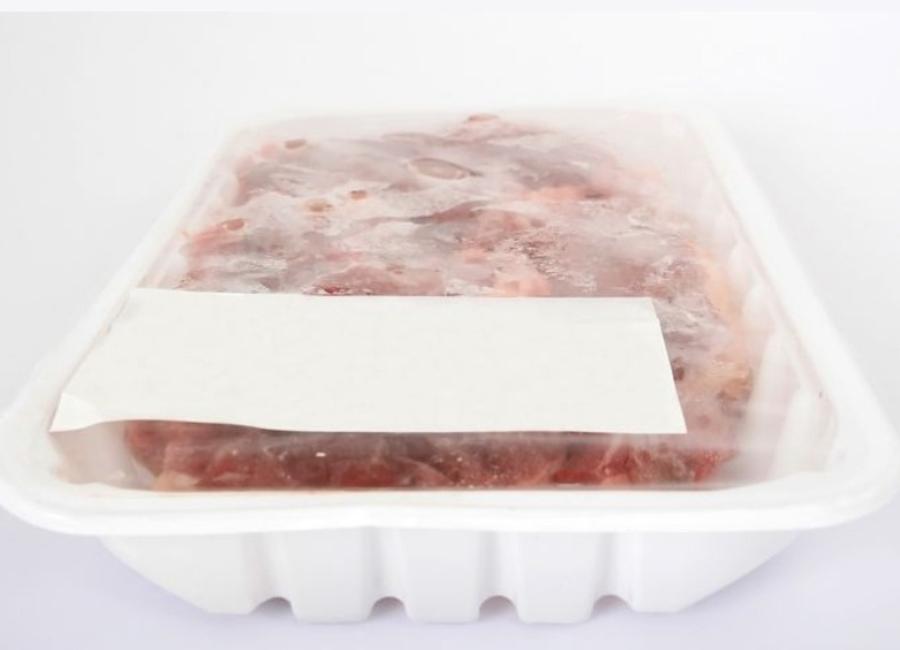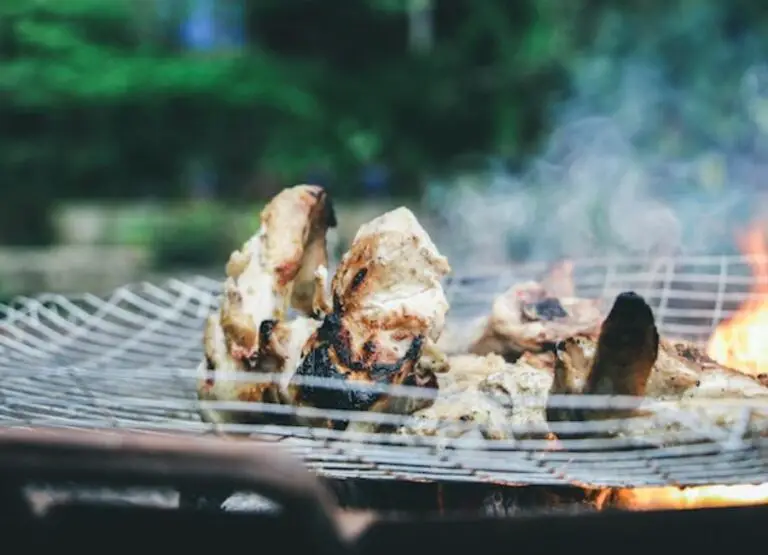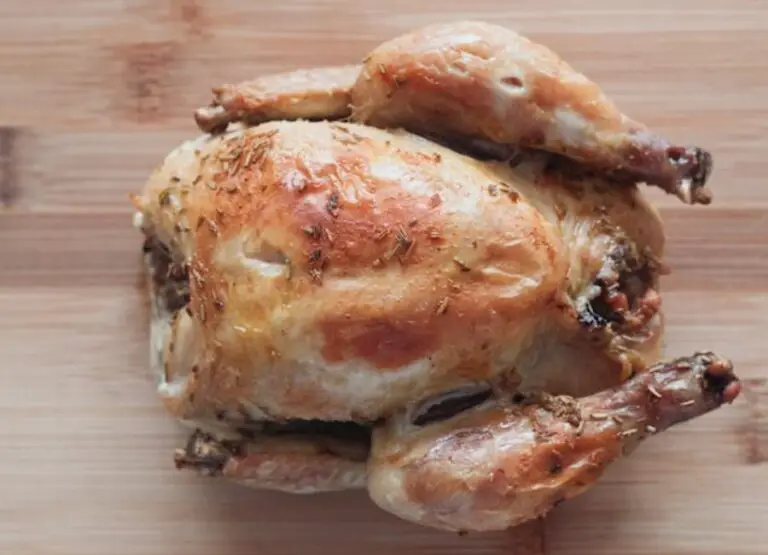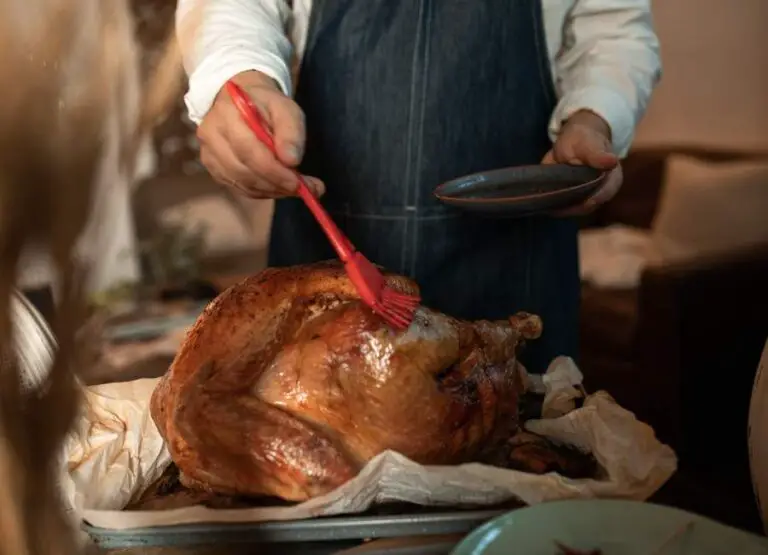8 Reasons Why Raw Chicken Package Inflated
Do you ever open a package of raw chicken and find out it is inflated as if it’s ready to burst?
While it might be easy to shrug off as a simple packaging mistake, it’s actually a sign that there could be harmful bacteria present.
In this article, we’ll explore what causes raw chicken package inflation, why it’s dangerous, and what you can do to keep yourself and your family safe.
Raw Chicken Package Inflated
If a package of raw chicken appears swollen or puffy, it might not necessarily be a sign of spoilage or an indication that the chicken is unsafe to eat.
In fact, sealed packages of chicken that appear puffy or swollen are typically still safe to consume, according to trade associations and industry experts.
Typically, the puffiness is due to the packaging process and is not an indication of spoilage.
It’s important to look for other signs of spoilage, such as an off odor or slime on the chicken, before determining whether the chicken is safe to eat.
If in doubt, it is generally a good idea to discard any food that appears or smells off.
Causes of Inflated Raw Chicken Packages
The following are some common causes of inflated raw chicken packages:
1. Expiration dates
If raw chicken is not consumed before the expiration date, it can spoil and result in an inflated package. Raw chicken has a finite shelf life.
This is due to the microorganisms that are present on the surface and inside the meat starting to break down the protein and release gases as the chicken ages.
Before purchasing raw chicken, it’s crucial to check the expiration date on the packaging, and you should eat it before that time.
2. Gas buildup
The most frequent reason for inflated raw chicken packaging is gas buildup.
This happens when naturally occurring bacteria or other microorganisms in the chicken start to decompose the meat.
As they do so, gases like carbon dioxide and methane are produced, which may cause the package to expand.
It’s crucial to throw away any chicken that appears inflated for this reason because it’s a natural process that happens as the chicken starts to spoil.
3. Bacterial growth
One of the most frequent reasons for inflated raw chicken packages is bacterial growth.
Salmonella and Campylobacter are two dangerous bacteria that can grow quickly in the presence of raw chicken.
These bacteria produce nitrogen and carbon dioxide gases when they grow, which can cause the package to expand.
Bacteria are likely to be the cause of any bad odor, slimy texture, or discoloration.
It’s crucial to handle and store raw chicken properly, cook it until the internal temperature reaches 165 degrees Fahrenheit, and never eat chicken that appears to have gone bad in order to prevent the growth of bacteria.
4. Poor packaging
Poor packaging can also result in inflated packages. When a package is not properly sealed, air can enter and cause the contents to expand.
This may occur during storage or shipping, particularly if the package is exposed to temperature variations.
Furthermore, if the packaging is too loose, air can get inside and cause the package to inflate.
It’s crucial to carefully inspect packages before buying them and to stay away from packages that seem to be damaged or improperly sealed to prevent inflated packages from being caused by poor packaging.
5. Temperature fluctuations
To stop bacterial growth, raw chicken must be stored at or below 40 degrees Fahrenheit.
When the chicken is exposed to temperatures above this limit, bacteria can grow and gas can be produced.
If the chicken is left in a hot car for an extended period of time, this can happen during shipping, storage, or even during the trip home from the grocery store.
Avoid storing raw chicken at room temperature for longer than two hours, and regularly check the temperature settings in your refrigerator and freezer to prevent temperature abuse.
6. Punctured packaging
When the packaging for raw chicken is punctured or damaged during delivery or while it is on the store shelf, air can enter the container and contribute to gas buildup.
Before purchasing raw chicken, it’s crucial to check the packaging, and damaged packages should be avoided.
7. Storage conditions
Always keep raw chicken in the fridge or freezer to avoid spoilage and gas buildup.
If the chicken is kept in a warm or humid environment, this can hasten to rot and raise the possibility of contracting a foodborne illness.
It’s crucial to properly store raw chicken and to keep it away from other foods to prevent cross-contamination.
8. Brining
To improve flavor and texture, some chicken is injected with a saltwater solution.
Before packaging, the chicken should be thoroughly drained to remove any excess liquid that could cause the package to expand.
This inflation may occur if the chicken is not thoroughly drained or the packaging is not made to hold the surplus liquid.
It’s crucial to check the label to see if the chicken has been brined and to avoid packages that seem excessively moist in order to prevent inflated packages brought on by brining.
Risks Associated with Inflated Raw Chicken Packages
As inflated raw chicken packets may contain dangerous pathogens like Salmonella or Campylobacter, they pose a health concern.
Consuming chicken that has been undercooked or is uncooked and tainted with these germs can result in foodborne disease, especially in vulnerable people.
Check the packing before making a purchase in order to avoid this, and stay away from products that seem inflated or leaking.
In order to eradicate any potential pathogens, raw chicken should also be carefully kept and cooked to an internal temperature of 165 °F (74 °C).
What to Do If You Encounter an Inflated Raw Chicken Package
The first thing you should do if you come across an inflated raw chicken packaging is NOT to eat the chicken.
This is because inflated packaging can suggest that dangerous germs like Salmonella or E. coli, which can lead to foodborne disease, are present in the chicken.
Follow these steps:
- Do not open the package – this can release harmful bacteria into the air.
- Put the package in a plastic bag and seal it.
- Wash your hands thoroughly with soap and warm water.
- Contact the store or manufacturer where you purchased the chicken and inform them of the issue.
- Dispose of the package in a secure trash can or dumpster to prevent animals from getting to it.
To avoid foodborne disease, handling raw chicken correctly is crucial at all times.
To avoid cross-contamination, always cook chicken until it reaches an internal temperature of 165 °F (74 °C) and wash your hands, utensils, and any surfaces that come into contact with raw chicken.
Learn more about the signs of a bad chicken breast.
Frequently Asked Questions
Why is my raw chicken package inflated?
The most common reason for a raw chicken package to be inflated is due to the gas buildup that occurs during the packaging process.
This is a result of the natural decomposition process of the chicken and is not necessarily an indication that the chicken has gone bad.
Is it safe to consume chicken from an inflated package?
If the chicken has been stored properly and has no visible signs of spoilage, it is generally safe to consume chicken from an inflated package.
However, if you are unsure about the safety of the chicken, it is best to err on the side of caution and discard it.
How do I know if the chicken in an inflated package has gone bad?
Some signs that the chicken in an inflated package has gone bad include a foul odor, slime, or discoloration on the surface of the chicken or a funky taste.
If you notice any of these signs, it is best to discard the chicken.
Can I still cook the chicken if the package is inflated?
Yes, you can still cook the chicken if the package is inflated.
It is important to inspect the chicken before cooking and discard it if you notice any signs of spoilage.
How can I prevent chicken packages from becoming inflated?
While it is not always possible to prevent chicken packages from becoming inflated, storing the chicken at the correct temperature can help slow down the decomposition process and reduce gas buildup.
It is also important to check the expiration date on the package and to properly dispose of any chicken that has expired.
What should I do if I have already consumed chicken from an inflated package and become ill?
If you have consumed chicken from an inflated package and experience any symptoms of foodborne illness, such as nausea, vomiting, diarrhea, or fever, it is important to seek medical attention right away.
You should also contact the store where you purchased the chicken and inform them of your illness.
Learn more about eating undercooked chicken.
Conclusion
In conclusion, if you ever come across an inflated package of raw chicken, it’s important to handle it with care.
Don’t open the package, and dispose of it immediately.
Raw chicken can contain harmful bacteria that can make you sick, so it’s better to be safe than sorry.
Always follow proper food handling and cooking practices to keep yourself and your loved ones safe and healthy.


![Can You Eat Raw Turkey [Answered]](https://foodcreeks.com/wp-content/uploads/2023/02/Can-You-Eat-Raw-Turkey-768x555.jpg)

![How To Prevent Salmonella In Chicken [11 Hints]](https://foodcreeks.com/wp-content/uploads/2023/05/How-To-Prevent-Salmonella-In-Chicken-768x555.jpg)


![9 Signs Of A Bad Raw Chicken Breast [Explained]](https://foodcreeks.com/wp-content/uploads/2023/02/Bad-Raw-Chicken-Breast-768x555.jpg)